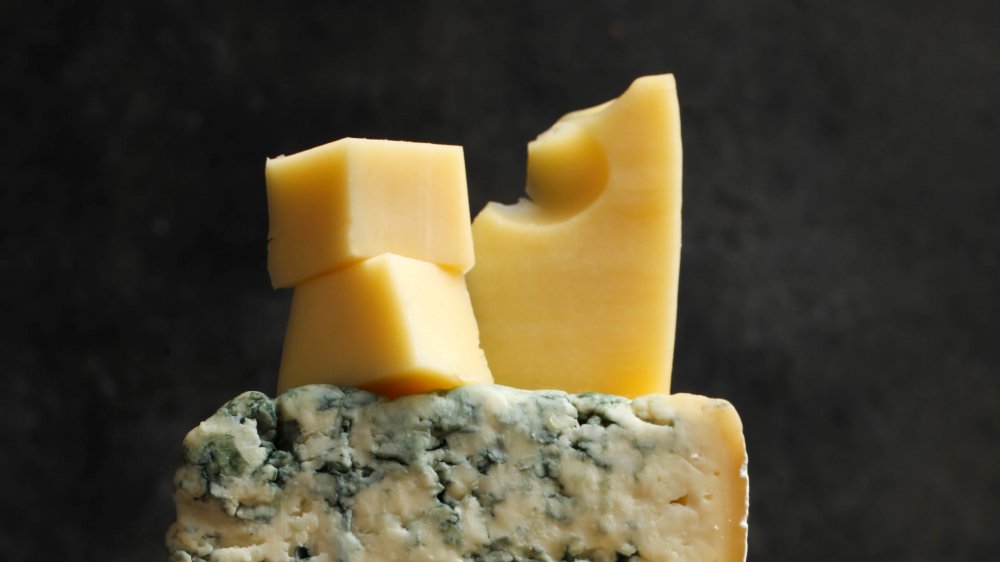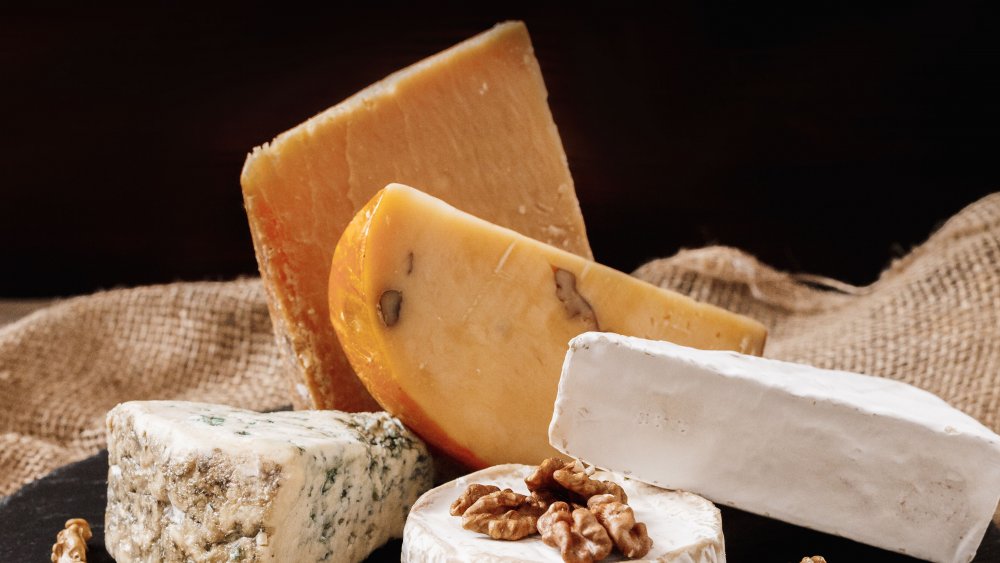The Real Reason Raw-Milk Cheese Is Illegal In The U.S.
Americans consume an average of more than 35 pounds of cheese per person annually, which means the United States population is practically made out of cheese (via Mashable). But why aren't Americans allowed to eat the stuff made from raw milk?
It seems as though the world-wide cheeseboard — pun intended — doesn't see eye-to-eye when it comes to the preparation of cheese. Some countries think raw-milk cheese is totally A-OK for public consumption, but the U.S is not one of them. The U.S requires the pasteurization of all milk products. If you aren't familiar with the term, pasteurization is basically the process of heating up liquid in order to kill all potential bacteria. The U.S seems to be bacteria-intolerant when it comes to cheese, but some feel it's a little too cautious (via Food and Wine).
Many of the bacteria that can live in cheese are completely harmless and are important players in cheese production, but for whatever reason, America is not keen on the idea (via Medical Daily).
America doesn't like bacteria in its cheese
The FDA is concerned about the possibility of E. coli being one of the bacteria inside of cheese from Europe. But France argues that the E. coli found in its popular cheeses are of the innocent variety. America still won't budge though. The FDA follows the logic that if non-toxic E. coli can get into French cheese, then the facilities in which the cheese is made must be unclean and therefore their cheese is unsafe for consumption.
Many critics argue that instead of attacking authentic and naturally processed cheese, the FDA should turn its attention to products like Kraft's American cheese — which is not actually cheese at all. It may not be filled with bacteria, but it is full of chemicals and fat. Perhaps the U.S doesn't like cheese at large if the product they allowed their name to be stamped on is considered a "processed cheese food" instead of just cheese. Kraft singles, for example, are made with less than 51 percent actual cheese, which means the company can't legally label it "cheese." Apparently that doesn't stop the stuff from being America's idea of the delicious dairy product (via Mental Floss).
Next time you get a chance to go to France and aren't limited to processed cheese food, it might be time to add some authentic and bacteria-rich raw-cheese to your charcuterie spread.

